
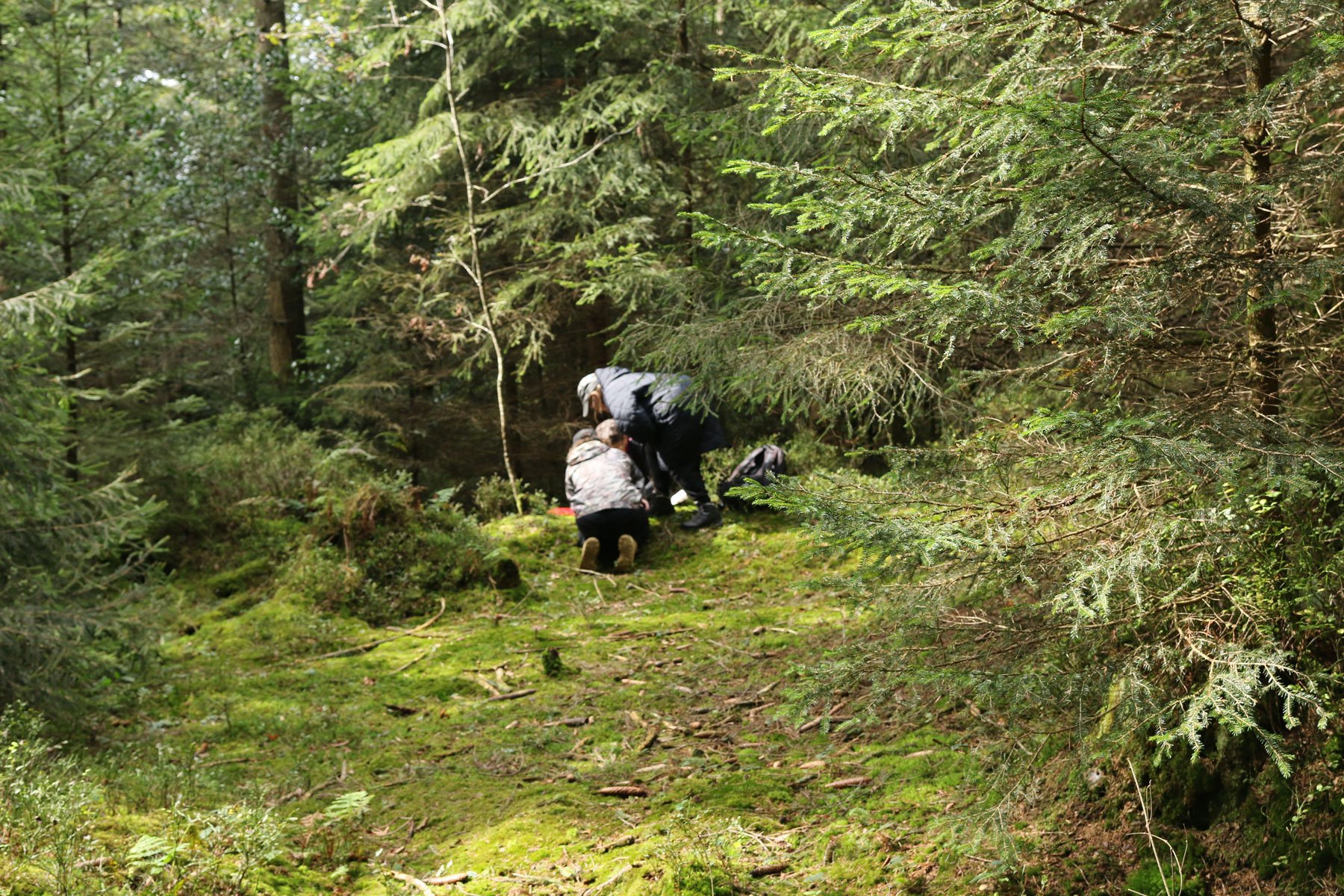
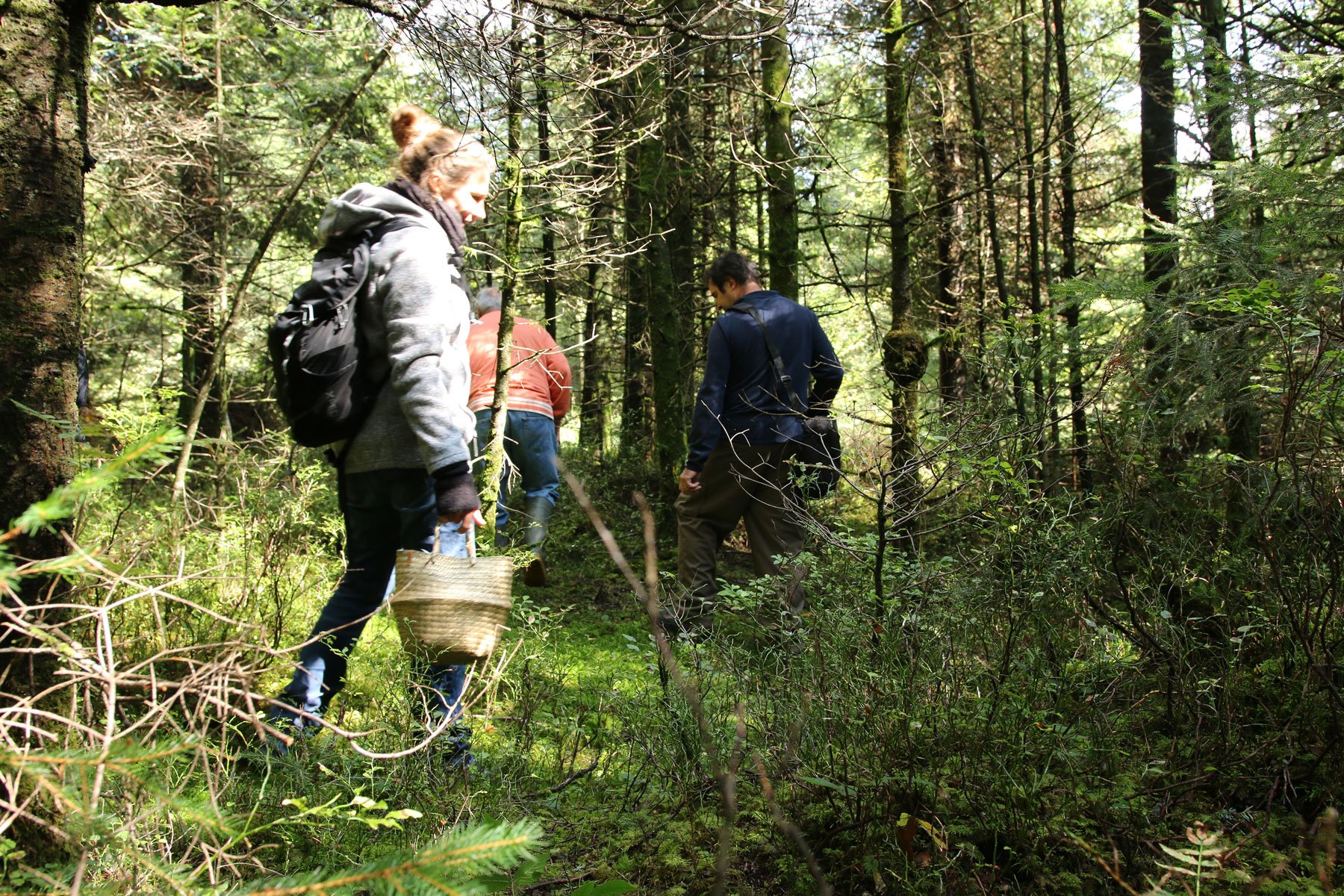

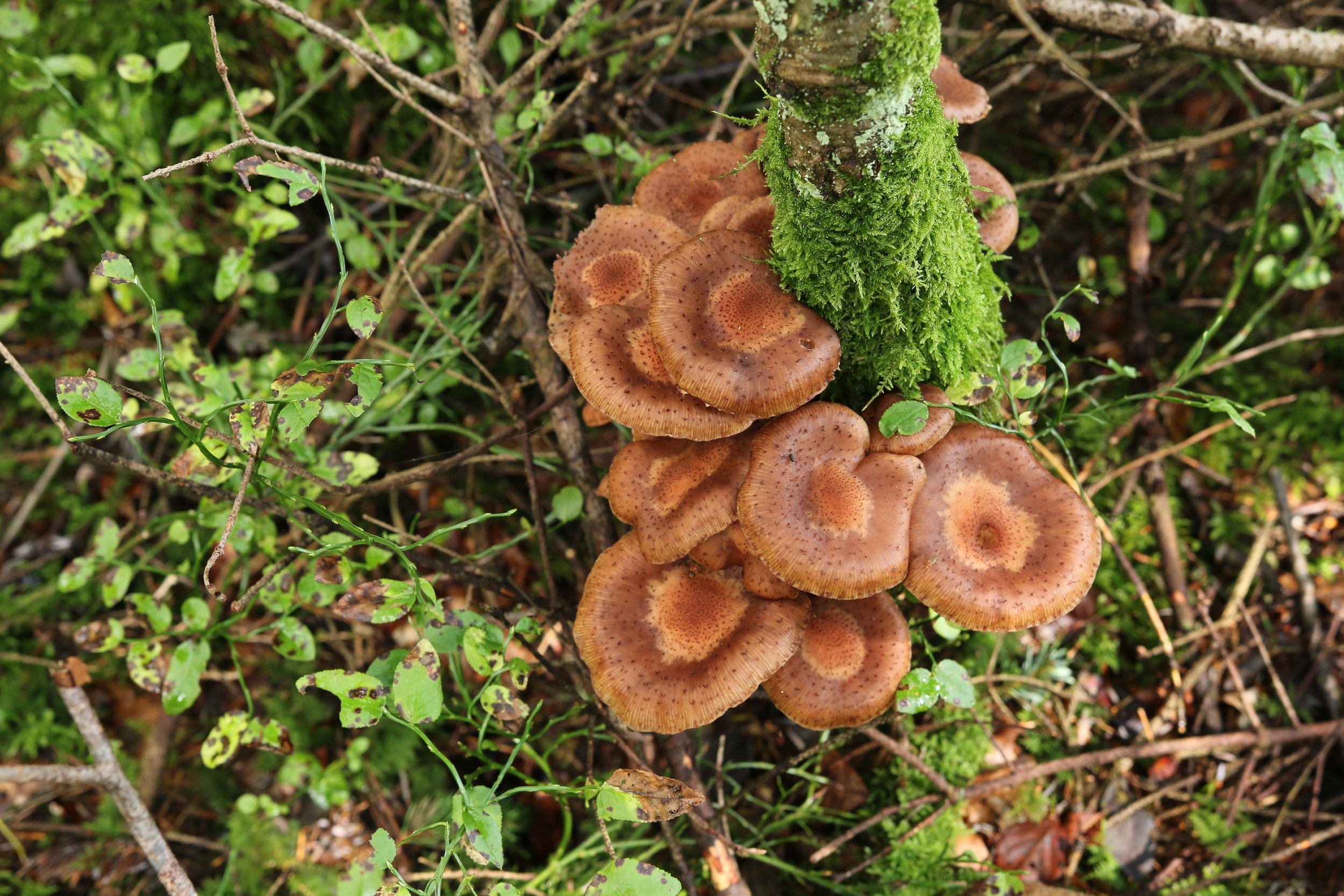
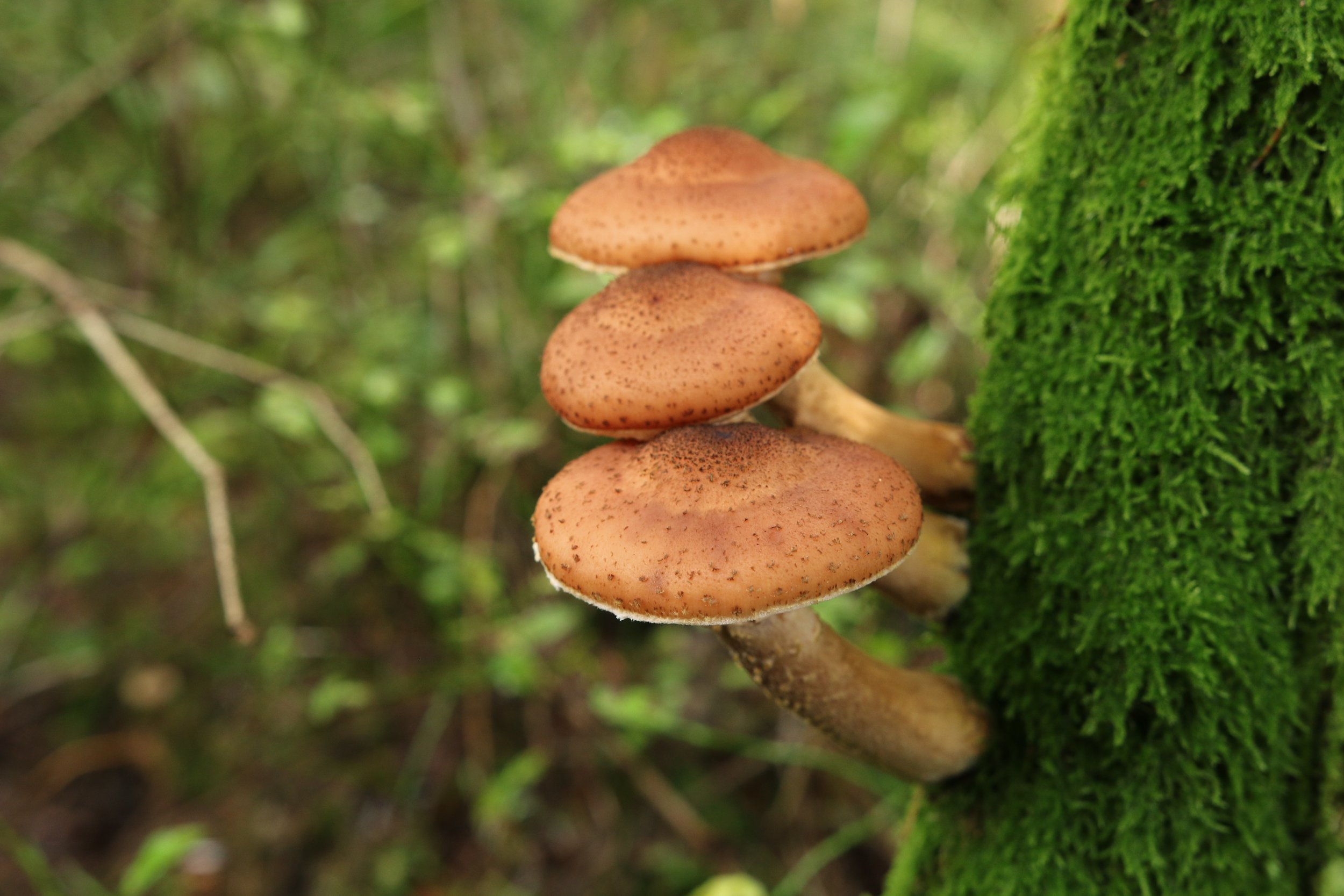

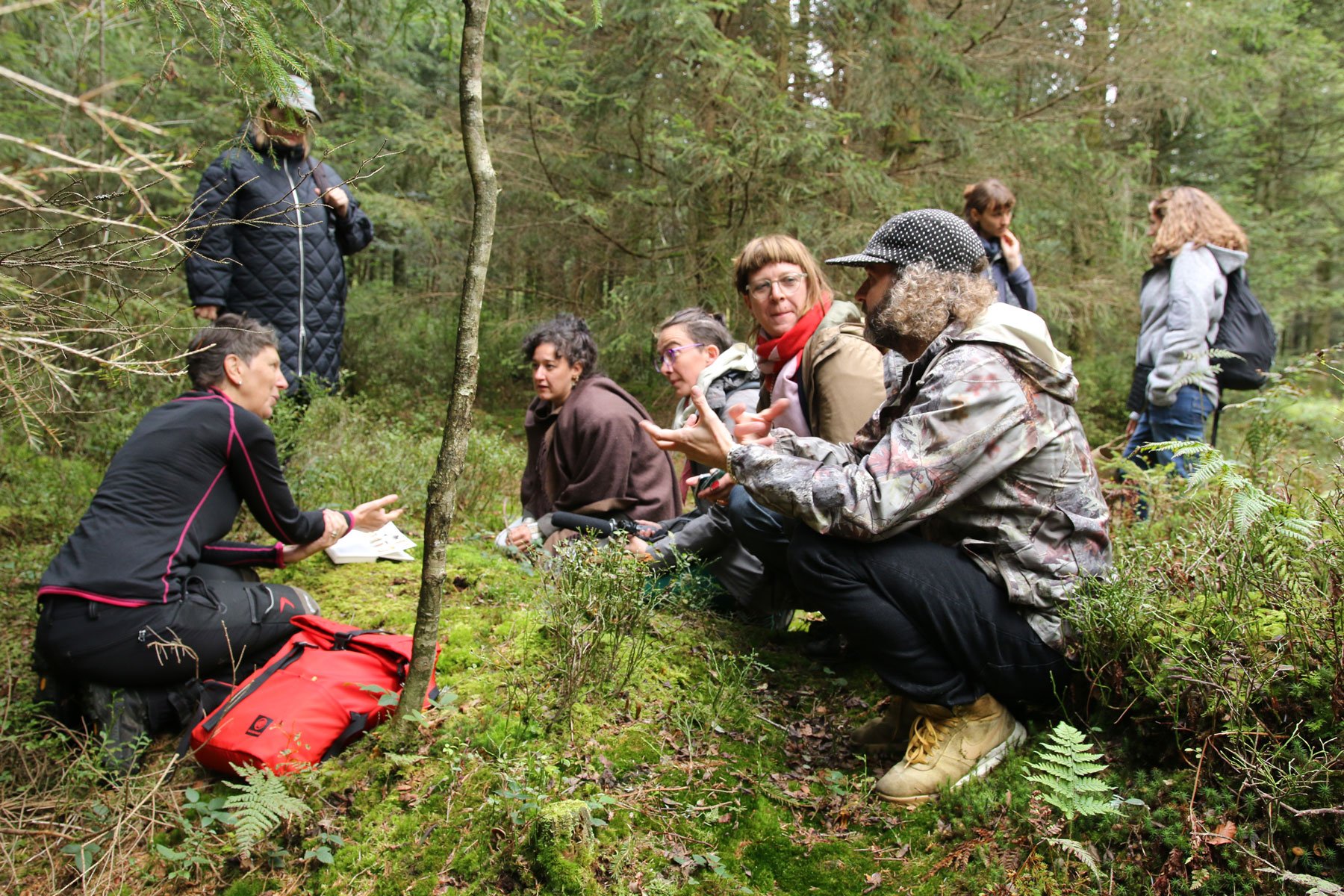


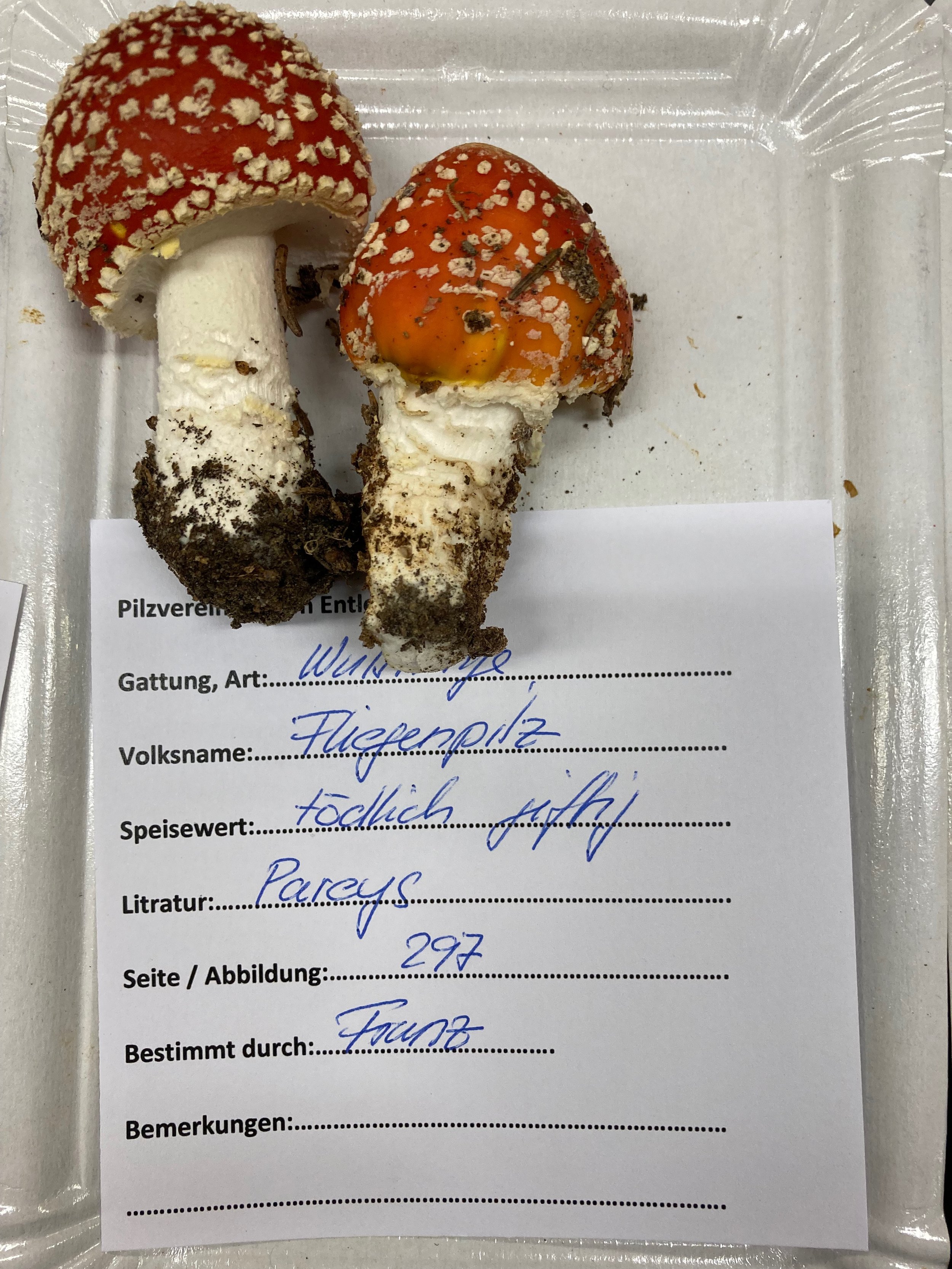
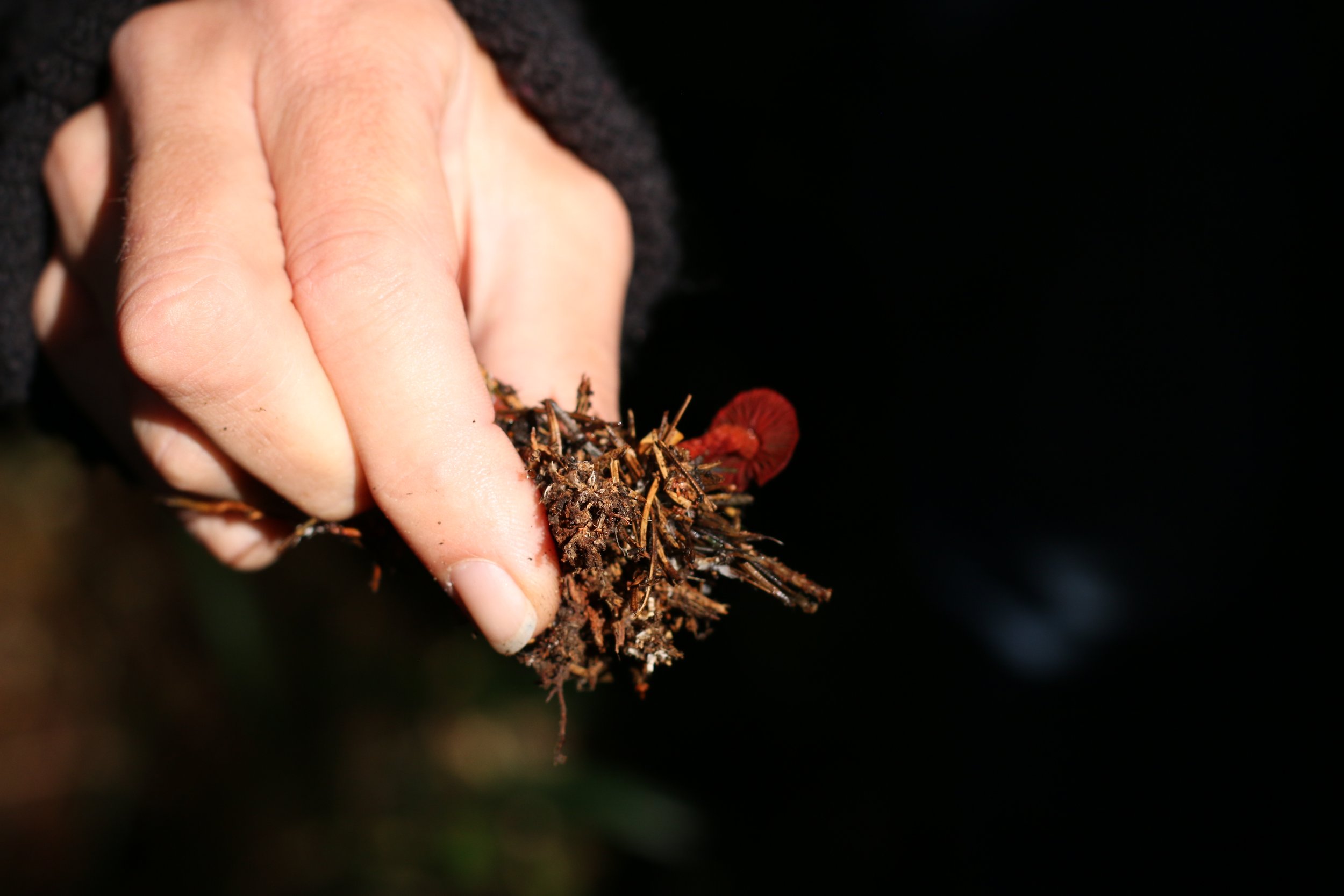
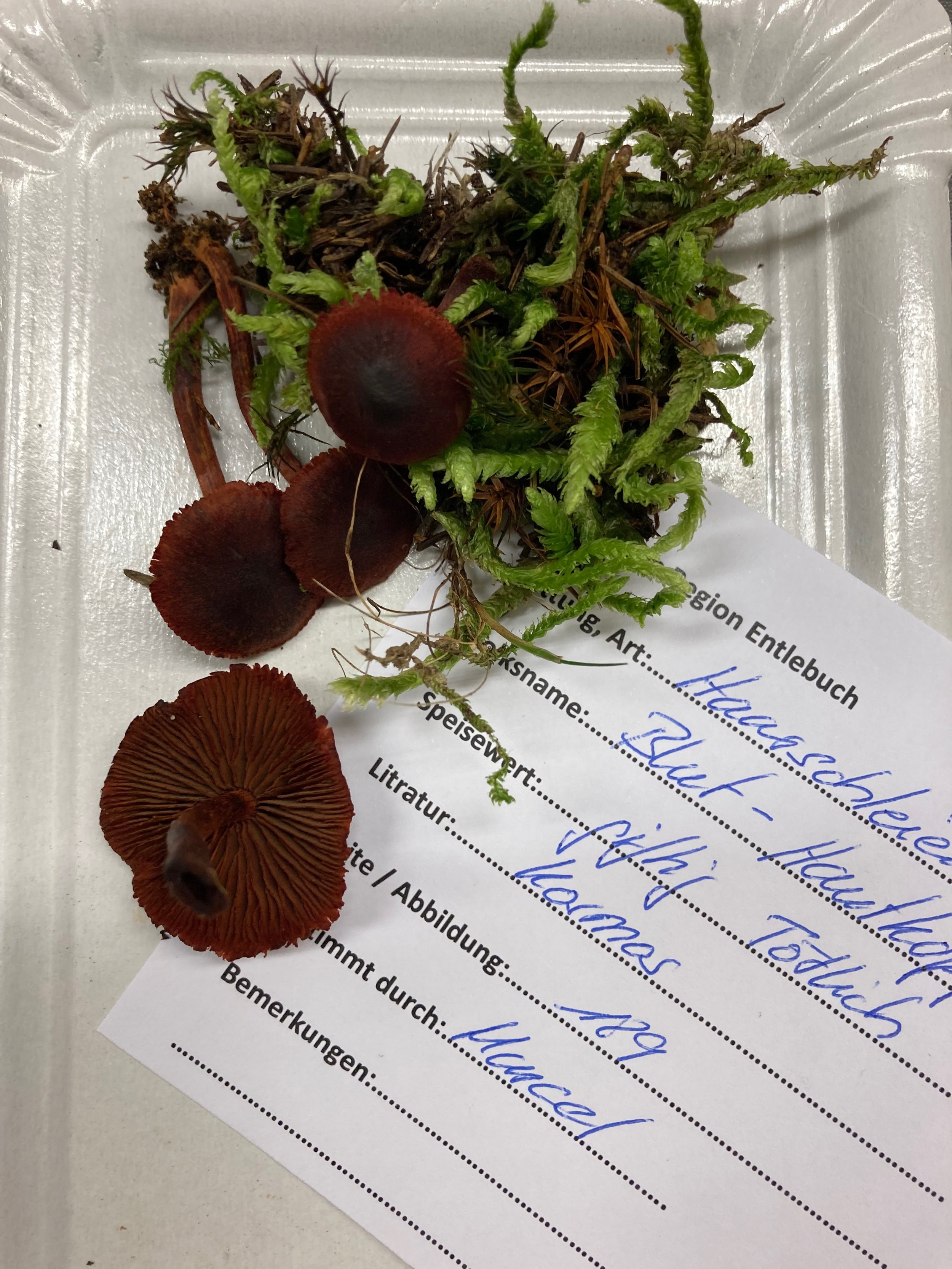

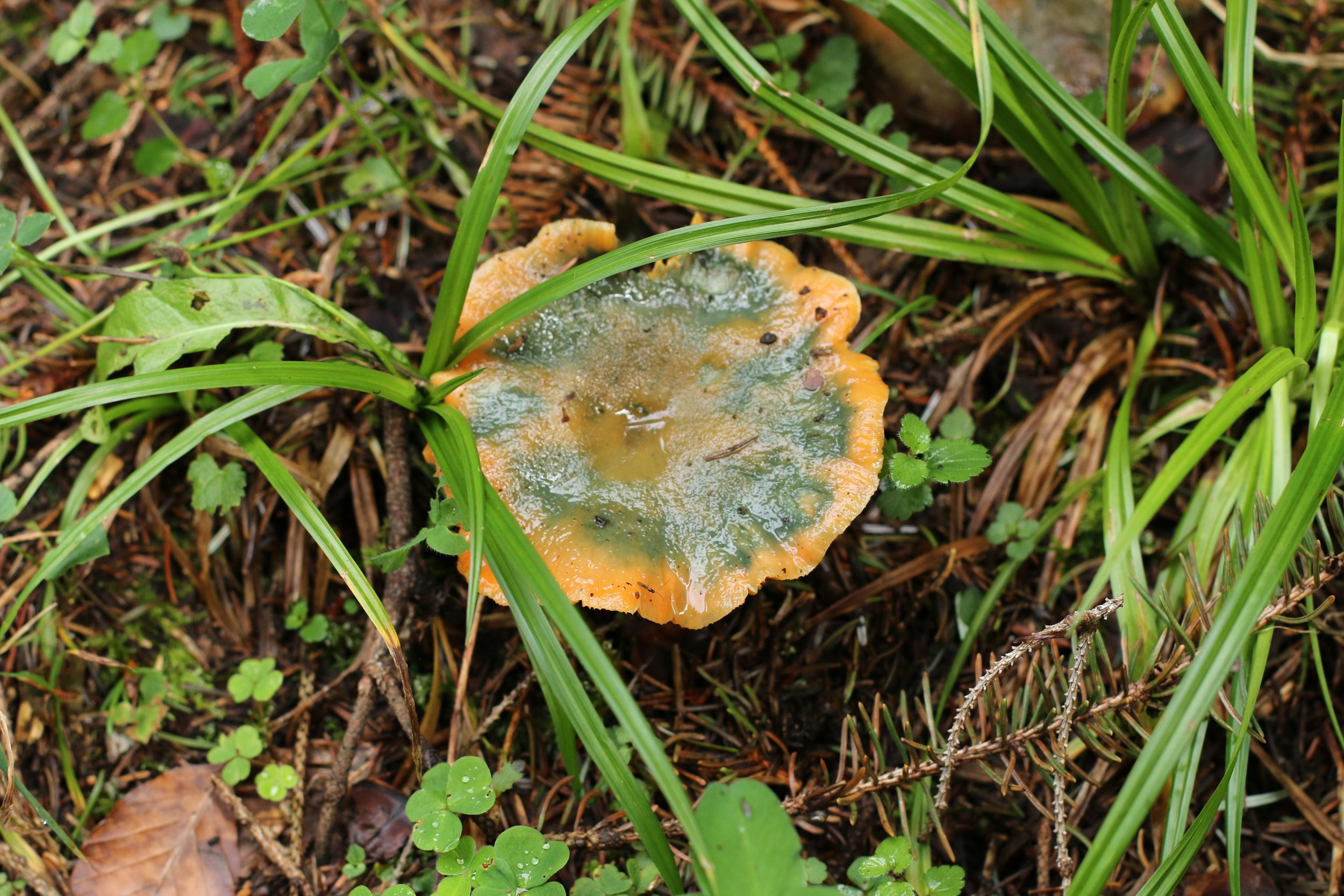

Mycelial Space
Sharing Knowledge with/through Fungi
Mycelial Space is a transdisciplinary networking platform for research and practice dedicated to the aesthetic, ecological, and theoretical potentials of fungi. We invite actors from fields such as art, film, ecology, citizen science, psychology, architecture, design and many more to present their activities on our blog and to think about possible shared knowledge production and methodologies. Our aim is to bring the currently very widespread but often disconnected initiatives into a productive exchange.
In its fascinating diversity of shapes, colors, smells, habitats, and transformations, the world of fungi is characterized by a remarkable ability to elude scientific attention. With their vast subterranean networks, their strategies of intertwining and symbiosis, and their ephemeral manifestations, fungi subvert the rigid boundaries of traditional disciplines and provide a vivid counter-model to science’s increasing fragmentation. As masters of cooperation and mediators between inorganic and organic matter, fungi stand out as model organisms for topological thinking and alternative forms of knowledge production. Their capability to regenerate ecological systems is of particular interest for citizen science and can be seen as a fruitful resource for developing new concepts of knowledge through artistic research.
Mycelial Space makes fungi a node for an exchange between experts from various scientific and artistic disciplines in terms of a playful and open-ended exploration of relational, non-linear, non-binary, and non-hierarchical concepts of knowledge and knowledge production. Building on Roger Caillois’ theory of »diagonal sciences«, the project aims to follow »nature’s transversal paths« and make links between different disciplines productive to engage in the very »lure of material space« that questions boundaries like the ones between self and other, organism and environment, theory and practice. Caillois developed a theory of artistic research, avant la lettre, which he was to apply not only with a view to oblique cross-connections between humans and insects, but also to the logic of the imaginary and its correspondences with the world of minerals and stones. Fungi alone mark a significant blank in Caillois‘ work, which the project addresses in an experimental transdisciplinary field research.
Beyond the »constraints of an overly narrow rationality«, to put it with Anna Tsing, Mycelial Space develops a non-intentional approach to mycelial knowledge, drawing on the idea of a tangible »multispecies assemblage« and the potentials of »different futures«. In this process, fungi themselves can be allowed as efficacious agents and cooperation partners to help sound out interstices between different disciplines and methodologies. Together with artists, mycologists, biologists, therapists, dancers, mathematicians, shamans, geologists, lichenologists, neurologists, and many more, we would like to open up unexpected spaces within a collaborative and participatory attempt at sharing knowledge about, with, and through fungi.
Project Team
The three initiators of the project Mycelial Space, Ilka Becker, Sarah Kolb, and Jutta Strohmaier, have cooperated in different artistic and scientific projects since 2004 and first met in this constellation of three in 2007 at the conference Just Not in Time. Inframediality and the Genealogy of the Unexpected at the Kölnischer Kunstverein. They share interests in agential and relational conceptions of space and time, in the theory and practice of photography, film and video, in alternative concepts of learning and teaching, and in the theory and practice of transdisciplinary and artistic forms of knowledge production. The project Mycelial Space is conceived as a collaborative and transdisciplinary experiment in which the initiators seek a playful exchange with invited experts in order to cultivate a practice of conscious indiscipline and openness to the unexpected.